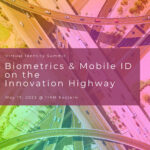The Transportation Security Administration (TSA) is planning to expand its testing of mobile traveler ID to airports in Puerto Rico and Tennessee later this year, according to TSA Administrator David Pekoske.

Testifying at a congressional budget hearing this week, the TSA head confirmed that the agency is currently trialling the acceptance of digital identity credentials at 19 airports, and said that the same functionality will be brought to the Luis Munoz Marin International Airport in June and Nashville International Airport in August. Arizona, Colorado, Maryland, and Utah are all currently involved in the pilots.
The TSA has been deploying next-generation “CAT-2” terminals for traveler verification in recent months, having announced a deployment at Denver International Airport in November. The terminals are designed to scan travelers’ faces and compare them to their photo ID, and can also read state-issued digital IDs.
Noting that his agency has been working in collaboration with Apple, Google, and Samsung on smartphone-based driver’s licenses, Pekoske said that such technology can streamline traveler processing, and emphasized its convenience for users. He also attested that “digital identity is very, very hard to counterfeit.”
“It’s a lot, lot more secure and convenient,” he said. “People will leave some things at home but they will not leave their smartphone.”
Pekoske’s testimony comes about a month after the Utah Department of Public Safety’s Driver License Division (DLD) announced that Utahns could use selfie-based enrolment to set up their own mobile IDs from the comfort of their own homes. Utah’s mobile driver’s license system uses technology from face biometrics specialist FaceTec, and the Utah DLD has been working with the TSA to enable the MDL’s use at the Salt Lake City International Airport through the TSA PreCheck screening program.
Source: FedScoop
–
(Originally published on Mobile ID World)








Follow Us